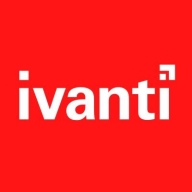

Appian and Ivanti Automation are in the business process management and automation solutions category. Appian leads in ease of use, attractive for organizations prioritizing user engagement, while Ivanti Automation stands out for its advanced automation capabilities.
Features:Appian is known for dynamic automation processes, exceptional integration capabilities, and its low-code platform for efficient business process management. Ivanti Automation is distinguished by extensive automation coverage, comprehensive script libraries, and powerful orchestration options.
Ease of Deployment and Customer Service:Appian offers a streamlined deployment model with rapid implementation and supportive customer service. Ivanti Automation provides customizable deployment with extensive support for complex IT environments backed by strong technical assistance.
Pricing and ROI:Appian involves a higher initial setup cost but reports significant ROI from increased efficiency and process optimization over time. Ivanti Automation presents a cost-effective approach initially with substantial long-term value, ideal for operations requiring extensive automation.
| Product | Market Share (%) |
|---|---|
| Appian | 4.5% |
| Ivanti Automation | 1.0% |
| Other | 94.5% |


| Company Size | Count |
|---|---|
| Small Business | 20 |
| Midsize Enterprise | 9 |
| Large Enterprise | 44 |
Appian is a unified low-code platform and solution used by businesses to build enterprise applications and workflows. This product adapts to the needs of clients and the technologies they are already using to combine their data in a single workflow and maximize resources. The platform has four main components through which it transforms the work process for companies of various sizes. They are:
Appian is utilized across a diverse set of industries, including automotive and manufacturing, energy and utilities, education, financial services, telecom and media, transportation, retail, insurance, healthcare, and life sciences. The most frequent use cases of Appian are customer journey, governance, risk and compliance, operational efficiency, supply chain, distributed order management, and environmental, social, and governance (ESG) management.
Appian Features
Appian has various features that allow users to create solutions for their businesses. These features can be separated into a few groups according to function, including automation, low-code application development, and integrations and data. Some of the most frequently used features of Appian include:
Appian Benefits
The benefits of using Appian include:
Reviews from Real Users
A practice leader - digital process automation at a computer software company values Appian highly because the product is easy to develop, low-code, and has a good user interface.
Alan G., an advisory board member at Codecon VR, Appian offers a clear application life cycle, easy to learn documentation, and comes with a fundamentals course.
Routine manual tasks consume IT and service desk resources and limit its ability to move ahead with higher-impact strategic projects. Ivanti Automation, powered by RES streamlines the management of complex hybrid environments by automating infrastructure, cloud, and workspace automation processes required to support the business.
We monitor all Process Automation reviews to prevent fraudulent reviews and keep review quality high. We do not post reviews by company employees or direct competitors. We validate each review for authenticity via cross-reference with LinkedIn, and personal follow-up with the reviewer when necessary.